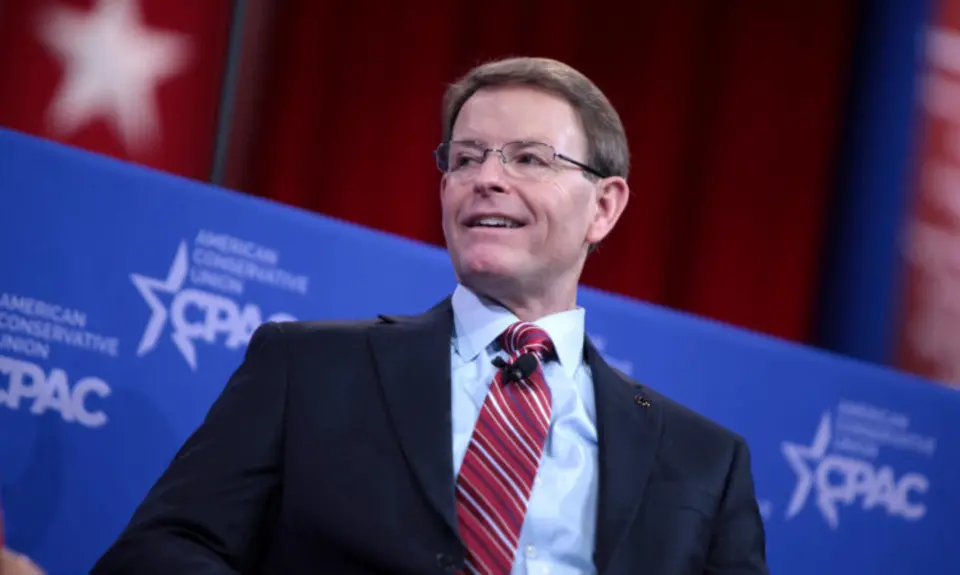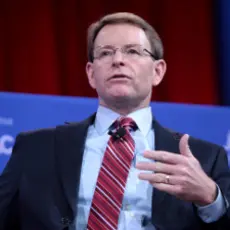With the Republican Party in disarray as it struggles to select a speaker of the House after gaining control of the House of Representatives in the 2022 elections, the Family Research Council's Tony Perkins hosted an episode of his "Pray, Vote, Stand" program Tuesday night during which he prayed for the GOP's success and misrepresented American history in the process.
Following an interview with Republican Rep. Michael Cloud of Texas about the debacle facing the GOP on its very first day in power, Perkins and Cloud prayed that the Republican Party would soon settle on a suitable candidate, asserting that prayer has often "really made the difference" at "critical times like this" throughout history.
Perkins likened the prayer he was about to deliver to the time Benjamin Franklin called for prayer during the Constitutional Convention, falsely claiming that the Founding Fathers then had Pastor Jacob Duché lead them in prayer.
"Can I pray for you and your colleagues?" Perkins asked.
"Yes, please do," Rep. Cloud replied. "We will take all the prayer we can get. You can look back in our country at so many critical times like this where prayer really made the difference."
"You're absolutely right," Perkins responded. "In fact, Ben Franklin called for prayer when the Constitutional Convention could not come to an agreement, and Pastor Duché came in and led in prayer and actually did a teaching to them."
While this claim about Franklin calling for prayer during the Constitutional Convention is popular with Christian nationalists and religious-right activists, it is inevitably misrepresented, as nothing ever came of it. As Right Wing Watch explained in September:
The delegates to the Constitutional Convention chose not to heed Franklin’s call to prayer and adjourned without taking any action on his suggestion. As historian Richard Beeman recounts in his book, "Plain, Honest Men: The Making of the American Constitution": "At the conclusion of the day’s session in which the delegates rejected his suggestion, [Franklin] scrawled a note on the bottom of the speech he had written expressing his incredulity: 'The convention, except three or four persons, thought prayer unnecessary!'"
In Perkins' case, he conflated Franklin's unsuccessful call to prayer during the Constitutional Convention in 1787 with a prayer delivered by Pastor Duché to open the First Continental Congress in 1774.
Interestingly, not only was Perkins wrong about the history he cited, but the pastor he named, Duché, turned out to actually be a loyalist who opposed independence from England.
Of course, these sorts of facts don't really matter much to Perkins and the other Christian nationalist activists who cite them, as they are perfectly content to misrepresent American history so long as doing so promotes their right-wing political agenda.







